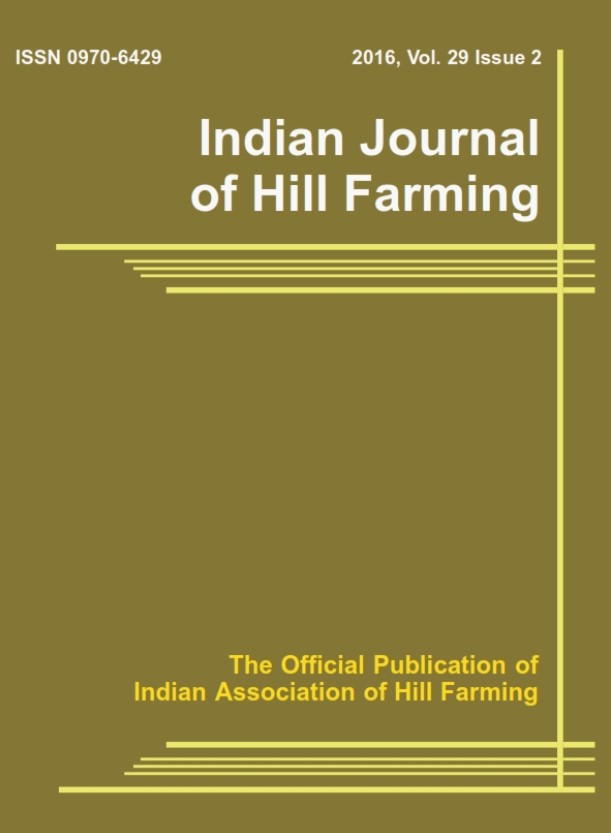Impact of traditional farming systems on soil properties under Hill Agroecosystem of NEH Region: A Review
DOI:
https://doi.org/10.56678/Keywords:
Apatani, Jhum cultivation, North Eastern Hill Region, Traditional Farming System.Abstract
The North Eastern Hill Region (NEHR) of India is recognized for its varied agro-climatic situations and the traditional farming practices (TFS) adopted by the people of this region. This article reviews the impact of these traditionally applied practices on soil properties of this region. Different traditional methods such as shifting cultivation, Zabo farming system, terrace farming and Apatani system have been reported to sustain livelihoods while nurturing soil health. The role of various cropping patterns, organic residue incorporation, minimal tillage operation, and terrace systems practised helps in promoting soil structure stabilization, enhanced nutrient cycling, and controlling erosion. Moreover, this article highpoints the influence of practices like fish farming in rice paddies and zero tillage methods on soil fertility as well as carbon sequestration. The nutrient dynamics and microbial activity in soils under traditional farming systems are also gaining importance in terms of its enhancement by these systems. Overall, emphasis on preserving and integrating these traditional knowledgebased farming systems with scientific advancements is encouraged for sustainable soil health management in the NEHR of India.Downloads
Published
2023-03-31
Issue
Section
Articles
License
Copyright (c) 2024 Boishali Dutta, Arunima Goswami, Apurba Baruah, Anasuya Boruah (Author)

This work is licensed under a Creative Commons Attribution-NonCommercial-NoDerivatives 4.0 International License.
How to Cite
Impact of traditional farming systems on soil properties under Hill Agroecosystem of NEH
Region: A Review. (2023). Indian Journal of Hill Farming, 37(01), 53-58. https://doi.org/10.56678/




